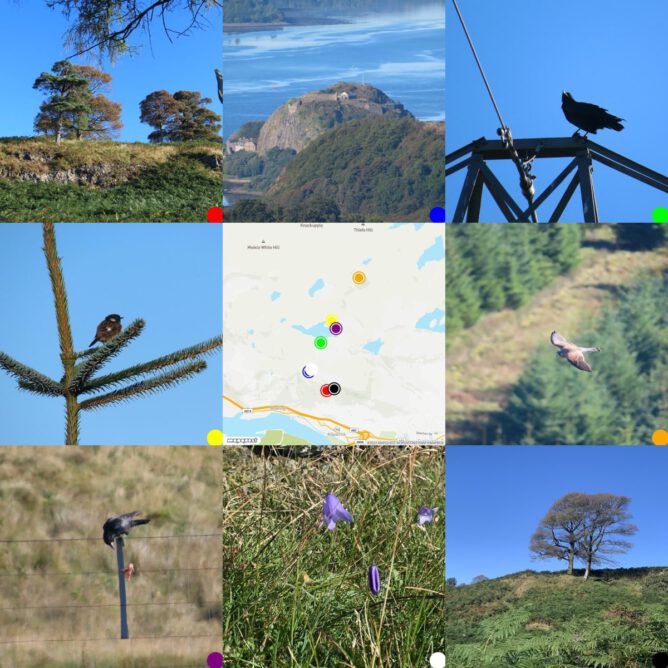
Walk to Duncolm. A sparking day, photos map & notes walkmap
I’ve now plotted 61 walks on the same map which is quite interesting. Spacebar hides the map tiles for that abstract look.


Walk to Duncolm. A sparking day, photos map & notes walkmap
I’ve now plotted 61 walks on the same map which is quite interesting. Spacebar hides the map tiles for that abstract look.
Just gathering a few podcast feeds. Problems:
1. Search finds links to podcast aggregators/apps rather than original site 2. These sites tend not to show the RSS feeds.
I know I can search & sub in Castro (or other app), but I just wanted to gather rss urls.
Mood Grumpy
Uh, you know, you could imagine a history of podcasting, that evolved more just like a digital version of radio, and didn’t have this, this idea of a feed. And there are services out there, I think, trying to get back to a more controlled, like not, not a feed-based system,
I’ve been really enjoying dipping into Really Specific Stories which is about the creative practice of RSS-based tech podcasting. So far a lot of the episodes I’ve listened to have been from duel point of views as listeners & producers. I’ve found the ‘listener’ views particularly compelling.
I’ve not managed to post any notes about the episodes I’ve listened to but I’am delighted that they come with full transcripts. I mostly listen to podcasts while driving, ideas pop into my head and vanish. The transcripts let me go back and skim to be reminded.
I didn’t really need to skim this episode except to grab a quote. Daniel’s passionate arguments for RSS and publishing in the open came across very strongly. I both enjoyed and agreed with it all.
Although Really Specific Stories is about tech podcasting I think anyone with an interest in podcasting would enjoy it. I’ve listened to several episodes now and will continue to follow it.
I presented during the 2022 Netherlands WordCamp edition in Arnhem on turning all WordPress sites into fully IndieWeb enabled sites. Meaning turning well over a third of the web into the open social web. Outside all the silos. The slides are available in my self-hosted Slideshare replacement for emb...
WordPress wants to be the Operating System for the Web. That OS is missing social features, and it’s not a big leap to add them with existing web protocols. No website owner would have to be a coder, be it home cooking style or professional, to use those social features and create conversations. It would just be there.
WordPress+IndieWeb as the OS of the Open Social Web – Interdependent Thoughts
Just great. Could quote every slide.
New iPhone feature. This is cool. In class we used use keynote or online services to cut out images. This is even simpler. No need for green screen. Works on my 4yr old phone. Hope it comes to iPadOS.
Running through my camera roll now iOS 16 installed. Impressed with the lookup of birds & insects that has been added to flora.
Read: The Glass Hotel by Emily St. John Mandel 📚★★★★★
Amazing multi viewpoint story. Writing had me invested in each of the diverse characters as they came into focus. Then their stories slowly fitted together. Beautiful. Really catches the way people imagine different lives.